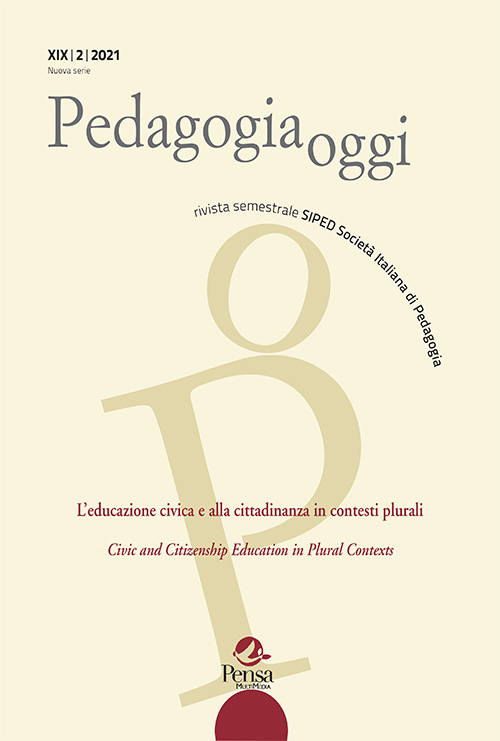Citizenship itineraries at school. Economy and sustainability for a plural world
DOI:
https://doi.org/10.7346/PO-022021-06Keywords:
Civic Education, Economic Education, School, 2030 Agenda, CitizenshipAbstract
Civic and citizenship education is the key process for giving young people and adults awareness of their position as citizens of the world, through a process of progressive humanization, and civilization (Margiotta, 2018). In order to promote the full development of the individual and the participation of all in the political, economic and social organization of their country (Guidelines L. 92/2019), economic education paths must be designed within the educational and civic function that school fulfils. Economic-financial inclusion is also one of the targets of the 2030 Agenda, which, in addition to promoting "Providing quality, equitable and inclusive education" (goal 4), emphasizes the role of economic knowledge and awareness being acquired from the earliest stages of life, including at school (Ferrata, 2018) in goal 8: "Encour-aging lasting, inclusive and sustainable economic growth ...". This essay proposes an integrated reading of civic-economic education developed in accordance with the targets set out in the 2030 Agenda.




